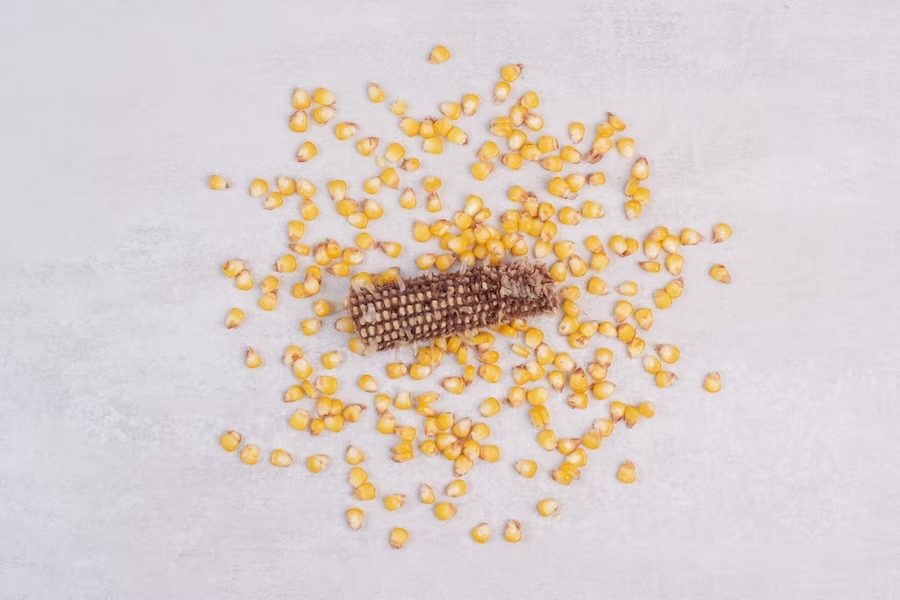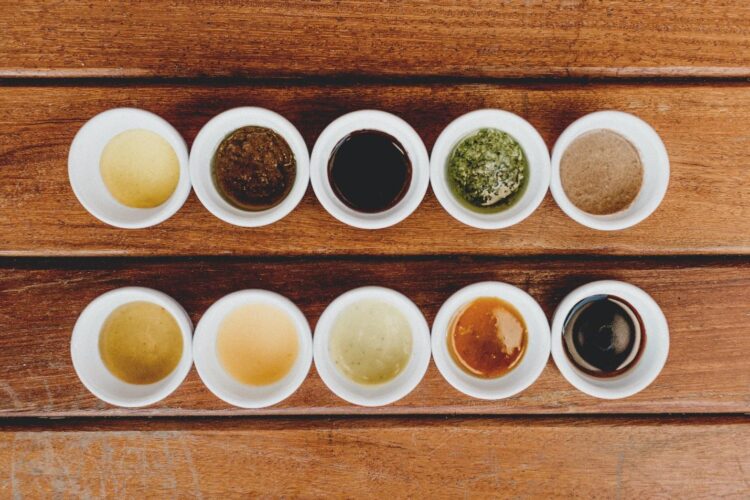Introduction
In this article, we’ll be discussing some of the best substitutes for cornmeal. But before we get into that, let’s first talk about what cornmeal is and why you might need a substitute for it.
Cornmeal is a coarsely ground flour made from dried corn kernels. It’s used in a variety of recipes, including breads, pancakes, and polenta. While it’s a staple ingredient in many cuisines, you may find yourself in need of a substitute for cornmeal if you’re allergic to corn or simply don’t have any on hand.
There are several substitutes that can be used in place of cornmeal. One option is to use rice flour. Rice flour is finely ground rice that can be used in many of the same recipes as cornmeal. Another option is to use wheat flour. Wheat flour is made from grinding wheat berries and has a slightly higher protein content than cornmeal. You can also use oat flour, which is made from grinding oats into a fine powder. Oat flour has a similar texture to wheat flour but with a slightly sweeter flavor. Finally, you can also use almond meal, which is made by grinding almonds into a fine powder. Almond meal has a slightly nutty flavor and can be used in sweet or savory recipes.
When choosing a substitute for cornmeal, it’s important to consider the recipe you’re making and choose an ingredient that will complement the flavors already present
What is Cornmeal Substitutes?
There are many substitutes for cornmeal, depending on what you need it for. If you’re looking for a gluten-free option, try arrowroot flour or tapioca flour. If you need a vegan substitute, try chickpea flour or potato starch. For a low-carbohydrate option, try almond meal or coconut flour. Whatever your needs, there’s a cornmeal substitute out there for you!
Substitutes for Cornmeal
When it comes to cornmeal, there are a few substitutes that can be used in a pinch. Here are the top best substitutes for cornmeal:
1. Grits
If you’re looking for a cornmeal substitute, grits are a great option. Grits are made from ground corn and have a similar texture to cornmeal. They’re commonly used in southern cooking and can be found in most grocery stores.
2. Ground Corn Chips
There are many types of corn chips on the market, but not all of them are made with ground corn. If you’re looking for a substitute for ground cornmeal, look for a brand that uses whole corn kernels instead. These brands will usually be labeled as “stoneground” or “whole grain.”
If you can’t find a brand that uses whole grains, you can also look for one that uses popcorn. Popcorn is a type of whole grain, and it’s a great alternative to ground cornmeal. Just make sure to check the ingredients list to make sure there’s no added sugar or salt.
There are also some brands that use rice flour instead of ground cornmeal. This is a good option if you’re avoiding gluten, but it doesn’t have the same nutritional value as whole grains.
3. Corn flour
Corn flour is a powder made from the grinding of dried corn kernels. It is gluten-free and has a higher protein content than other flours, making it ideal for baked goods. Corn flour can be used in place of all-purpose flour or other gluten-free flours in most recipes.
4. Semolina
Semolina is a coarse, granular flour made from durum wheat, a hard type of wheat. It’s used in pasta, couscous, and pudding, and has a nutty flavor. Semolina is also used to make Italian breads like focaccia and pizza dough.
5. Panko Breadcrumbs
Panko breadcrumbs are a great alternative to cornmeal. They are light and crispy, making them perfect for toppings and coatings. Panko is made from bread that has been dried and ground into crumbs. It is commonly used in Japanese cuisine, but it is becoming increasingly popular in the Western world.
There are many brands of panko breadcrumbs available, but I recommend Japanese-style panko for the best flavor and texture. You can find panko at most Asian markets or online.
6. All-purpose flour
This is probably the most common substitute for cornmeal. All-purpose flour can be used in place of cornmeal at a 1:1 ratio.
7. Rice flour
Rice flour is another good substitute for cornmeal. It can be used at a 1:1 ratio in place of cornmeal.
8. Buckwheat flour
Buckwheat flour can also be used as a substitute for cornmeal. It should be used at a 1:1 ratio in place of cornmeal.
9. Quinoa flakes
Quinoa flakes make a great alternative to cornmeal and can be used at a 1:1 ratio in place of cornmeal.
10. Polenta
Polenta is another excellent substitute for cornmeal and can be used at a 1:1 ratio in place of cornmeal
Conclusion
If you’re looking for a way to replace cornmeal in your recipes, there are plenty of options available. Whether you are following a gluten-free or vegan diet, or just looking for something new to add some flavor and texture to your dish, these cornmeal substitutes can provide the perfect solution. From oat flour and potato starch to quinoa flour and almond meal, you have a wide variety of ingredients at your disposal that can help give your recipe an extra kick. Have fun experimenting with different combinations until you find the best one for you!



